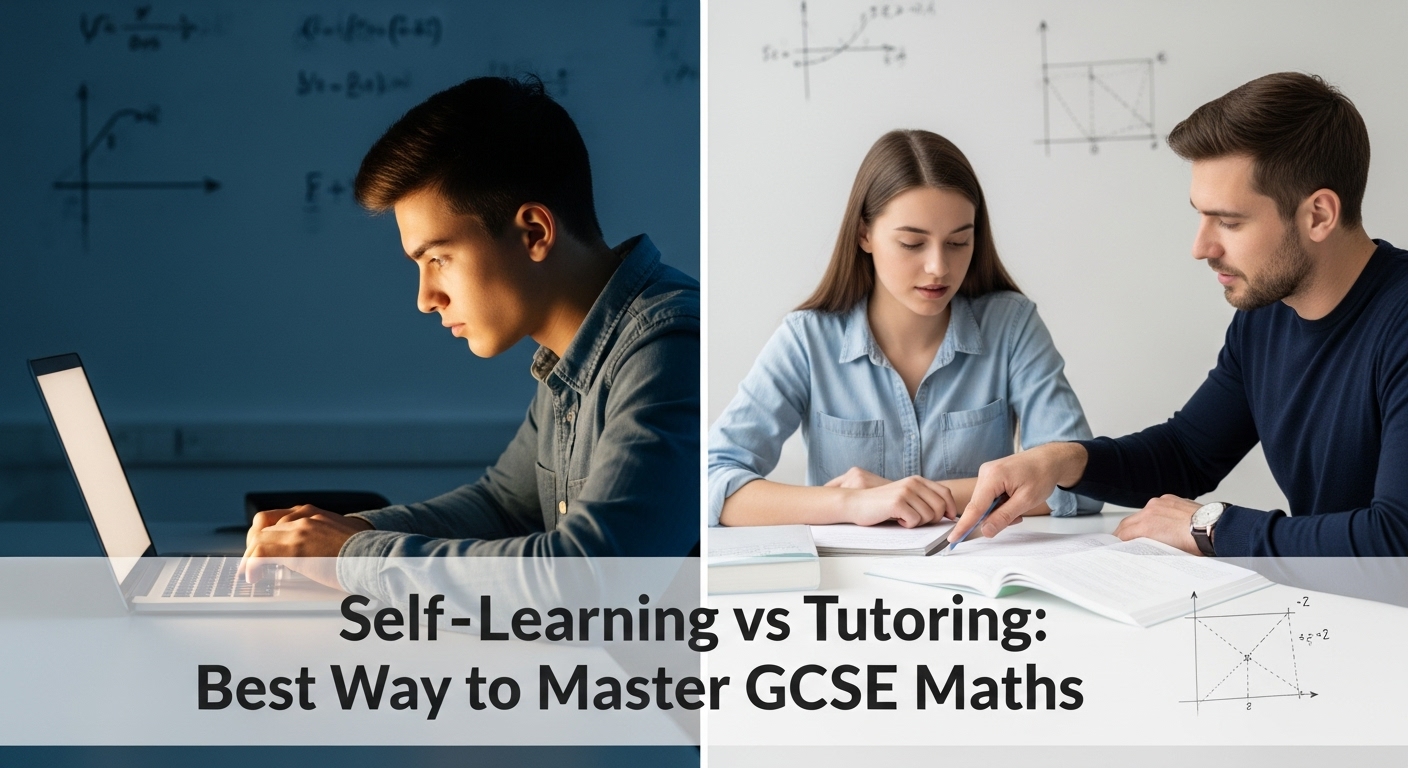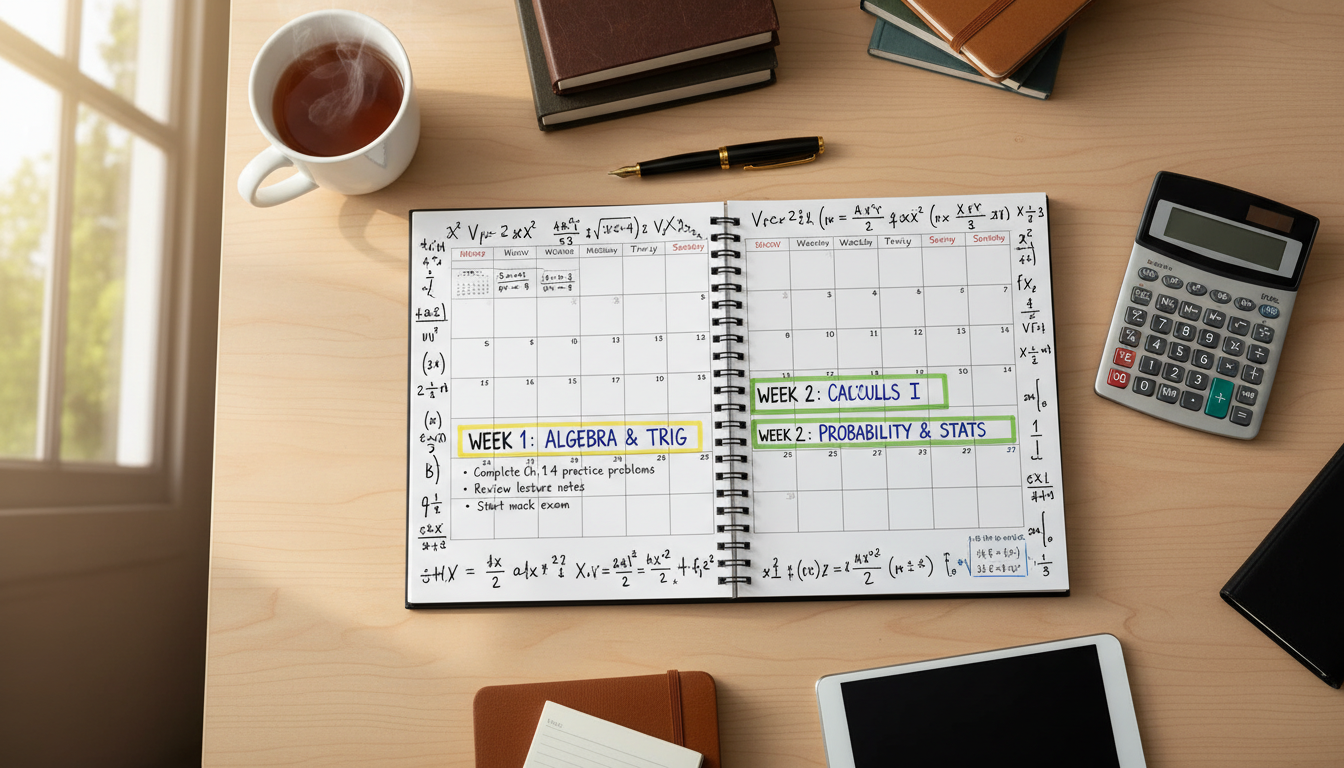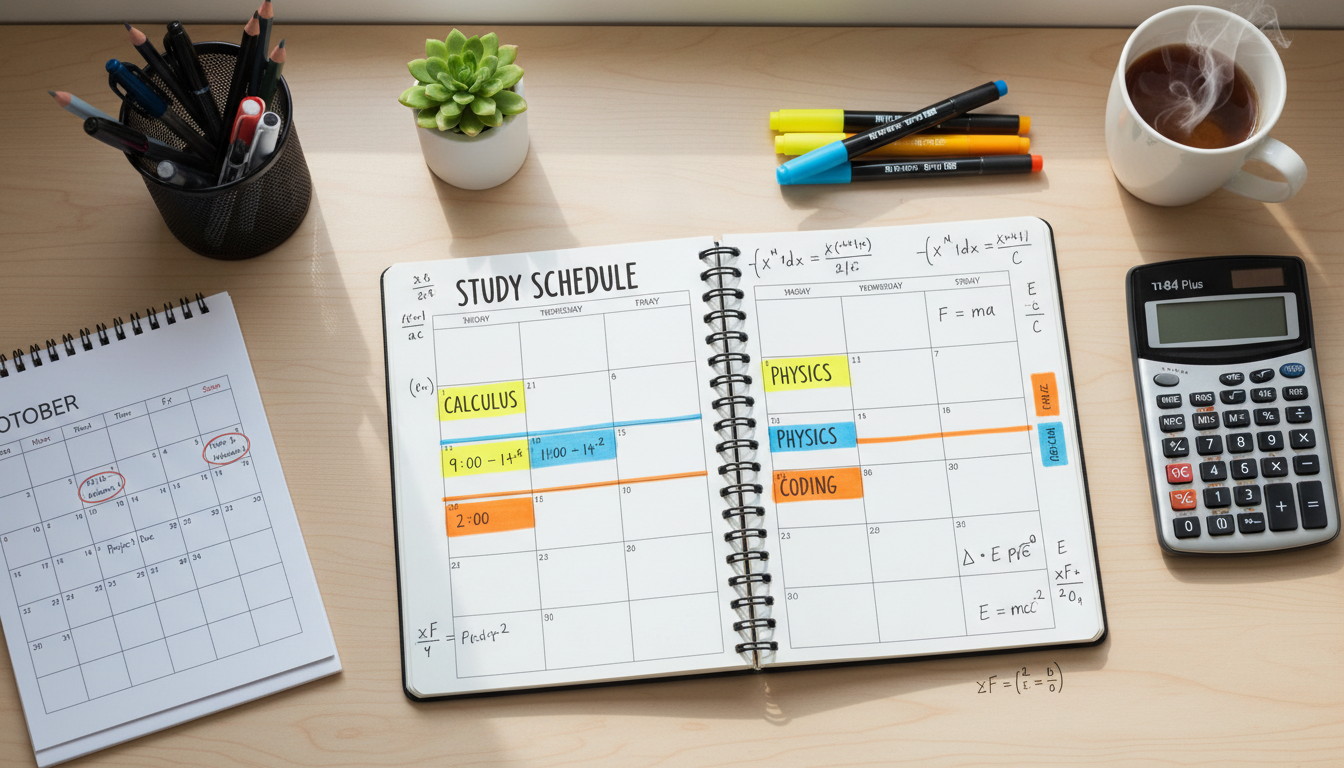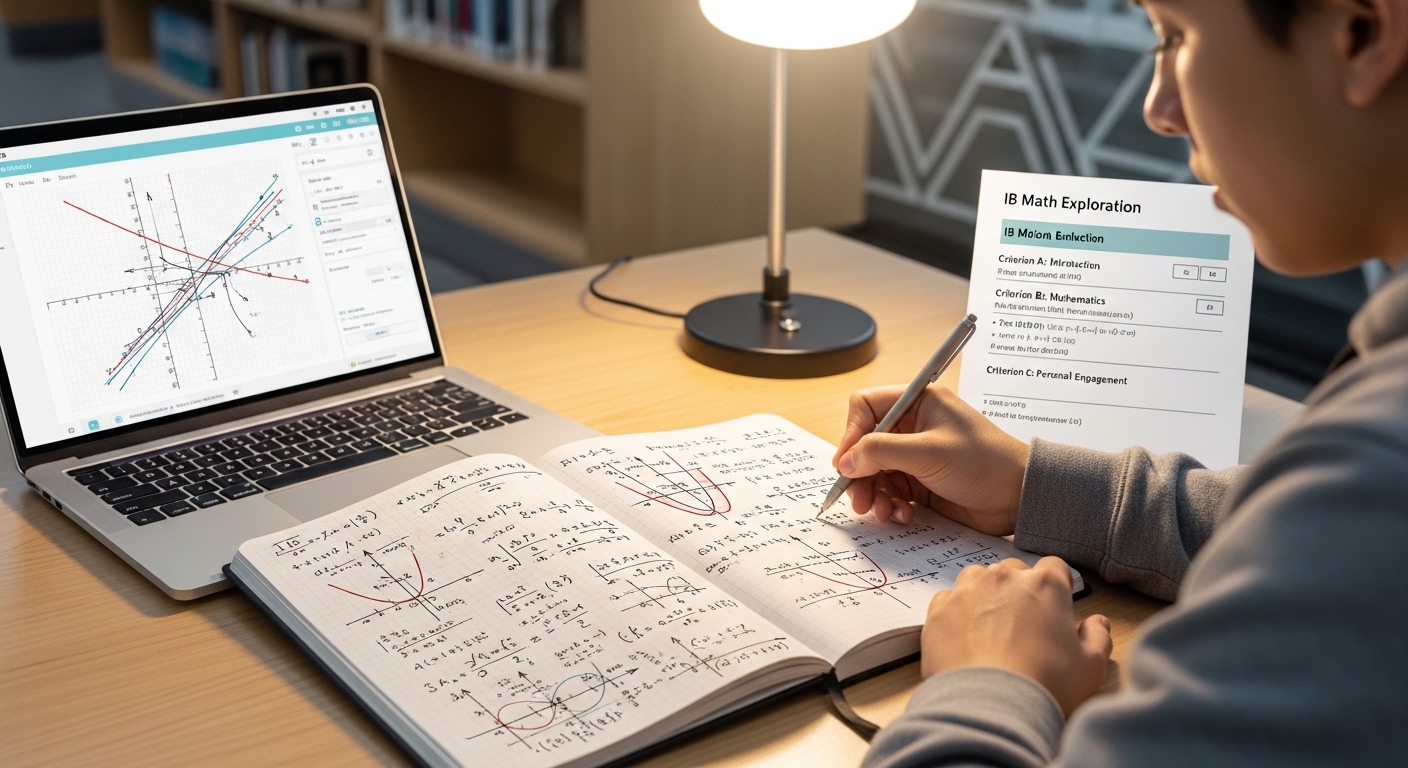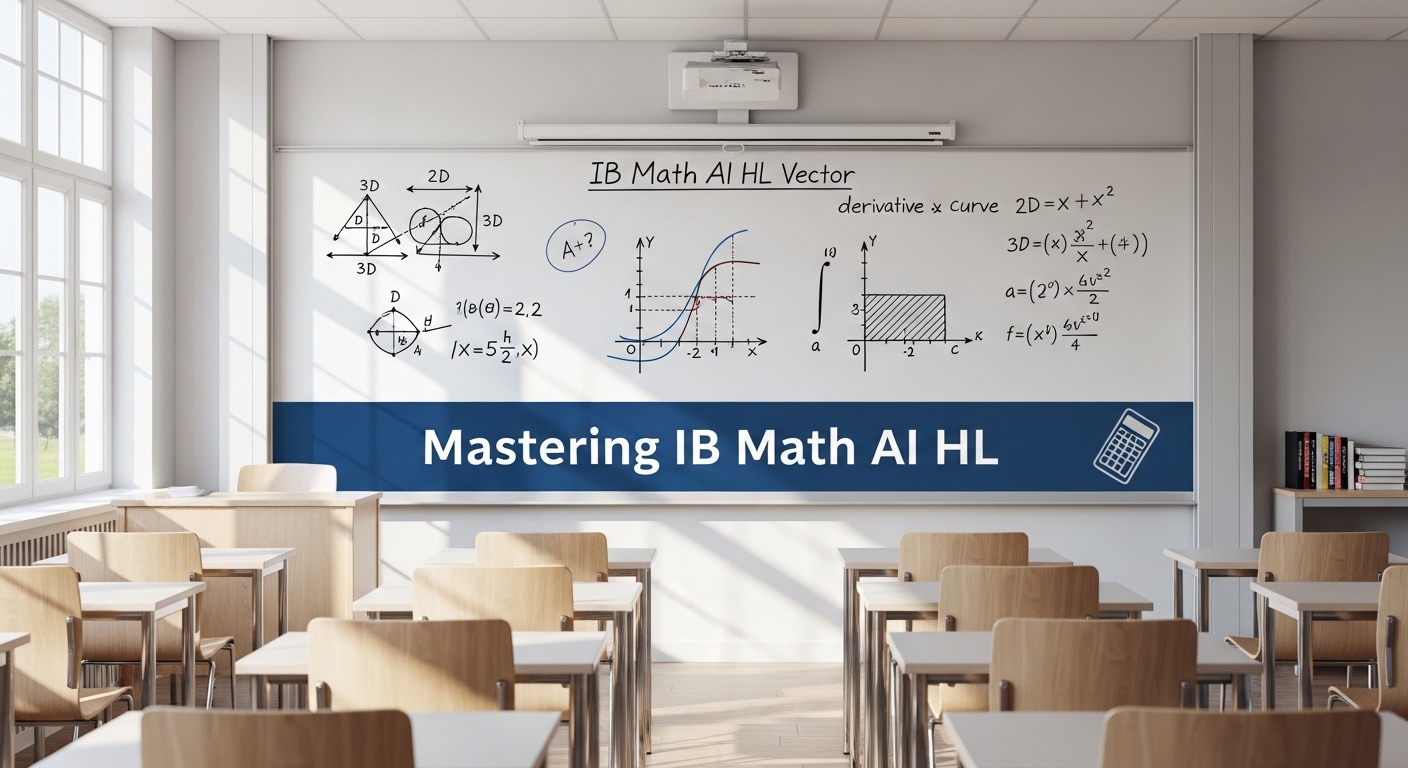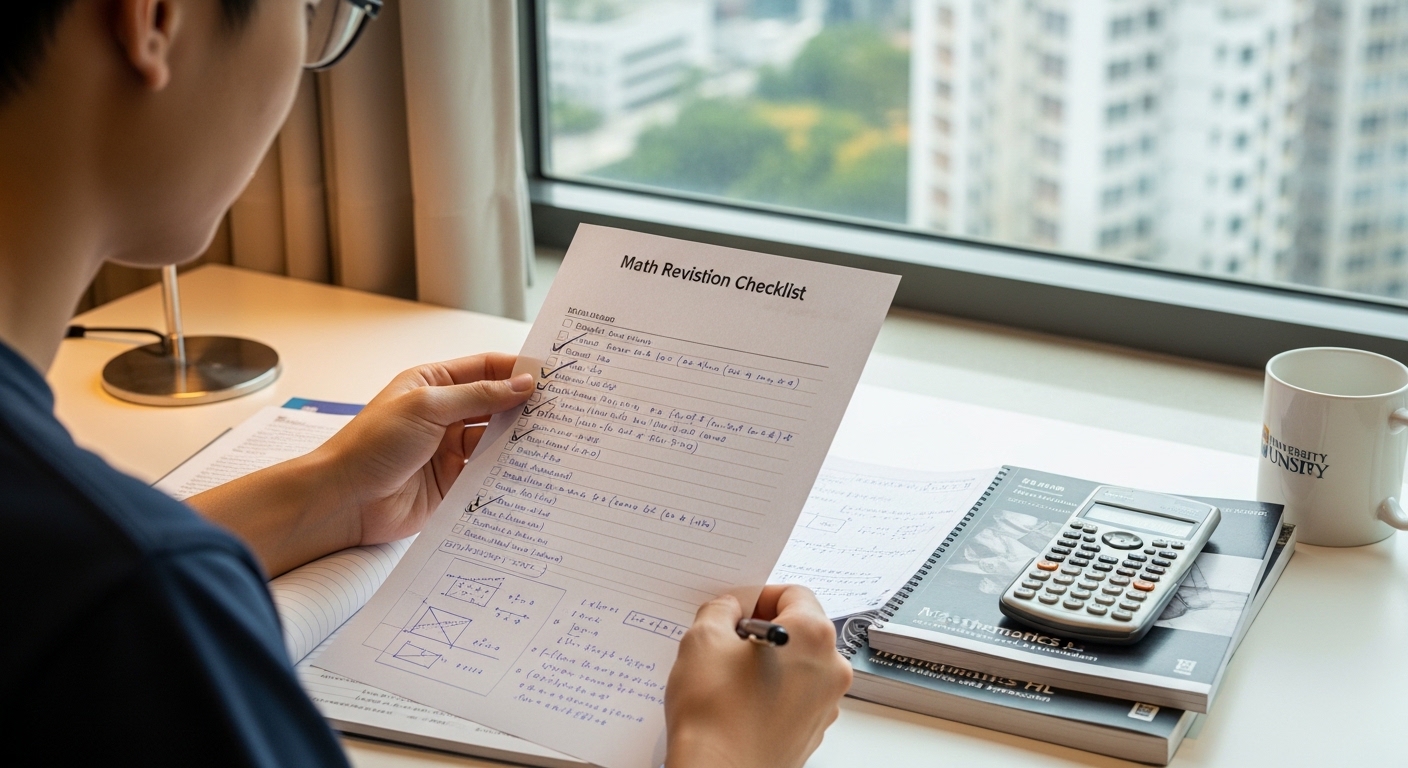Introduction
Choosing between self-learning GCSE Maths and tutoring is one of the biggest decisions for students preparing for their exams.
Both methods can help you succeed — but the best choice depends on your goals, schedule, budget, and motivation level.
With the right approach (or even a mix of both), you can unlock your full potential and approach your GCSE Maths exam with confidence.
Table of Contents
What Is Self-Learning GCSE Maths?
Self-learning GCSE Maths means taking control of your own revision — studying independently using online materials, textbooks, videos, and practice papers.
With countless digital platforms available, self-learners can now access:
- Free GCSE maths courses
- Interactive quizzes
- Past paper libraries
- Video lessons and revision tools
It’s a flexible, cost-effective, and empowering approach for students who enjoy working at their own pace.
However, it also requires strong self-discipline and the ability to track your progress without constant guidance.
What Is Tutoring for Self-learning GCSE Maths?
Tutoring provides structured guidance and support from an expert tutor who tailors lessons to your level and goals.
Tutoring can take several forms:
- One-to-One Tutoring: Individual attention focused entirely on your strengths and weaknesses.
- Group Tutoring: Small group sessions where students learn collaboratively with peer support.
- Online Tutoring: Virtual lessons with interactive tools and resources.
Good tutors don’t just teach formulas — they help you understand why methods work and how to apply them strategically in exams.
Benefits of Self-Learning
1. Flexibility
You can study anytime, anywhere. Perfect for students with busy schedules or other commitments.
2. Cost-Effective
Self-learning is budget-friendly. Free online materials (like those from Mathzem.com) mean you can access top-quality revision tools without high costs.
3. Independence
You develop discipline and problem-solving skills by managing your learning path.
4. Personalized Pacing
You decide how fast or slow to go — spending extra time on topics you find difficult.
5. Resource Variety
From YouTube tutorials to GCSE maths revision apps, you can choose formats that match your learning style.

Benefits of Tutoring
1. Expert Guidance
Tutors identify your weak spots quickly and provide personalized feedback.
2. Structured Learning
Regular sessions keep you on track, ensuring you cover the syllabus efficiently.
3. Motivation and Accountability
Tutors push you to stay consistent and maintain focus — ideal for students who struggle to stay disciplined alone.
4. Confidence Boost
Personal interaction helps clarify doubts instantly and strengthens your confidence in problem-solving.
5. Exam Technique Coaching
Tutors often share insider tips on timing, question structure, and mark schemes — key advantages during exams.
Self-Learning vs Tutoring Comparison Table
| Feature | Self-Learning | Tutoring |
|---|---|---|
| Cost | Free or low-cost | Higher investment |
| Flexibility | Study anytime | Scheduled sessions |
| Personal Support | Limited | Full, individualized feedback |
| Motivation Level Required | High | Moderate |
| Resource Access | Free online tools | Tailored materials from tutor |
| Learning Pace | Self-controlled | Guided |
| Ideal For | Independent learners | Students seeking structure and accountability |
How to Combine Both Approaches
You don’t have to choose only one. The most successful students use a hybrid approach — self-learning during the week and tutoring for guided sessions on weekends.
This combination allows you to:
- Learn theory independently
- Get expert feedback from tutors
- Balance cost and personalized help
- Cover more content efficiently
Tip: Use Mathzem’s online resources for daily practice, and schedule live tutoring sessions for exam technique training or tricky topics.
Choosing the Right Path for You
To decide between self-learning GCSE Maths and tutoring, ask yourself:
- Do I stay motivated on my own?
- Can I identify and fix my weak areas independently?
- Do I need external accountability or structured lessons?
- What’s my budget for revision support?
If you’re self-disciplined and enjoy independence, self-learning can work wonders.
If you thrive on feedback and guidance, tutoring will accelerate your progress.
And if you want the best of both worlds — a combination is ideal.
How Mathzem Supports Both Learning Types
At Mathzem, we believe in empowering every student — whether you’re learning solo or guided by an expert.
Mathzem offers:
- Free Self-Learning Resources: Interactive video lessons, quizzes, and downloadable past papers.
- Group Learning: Small, live classes for collaborative learning.
- One-to-One Tutoring: Fully personalized sessions focusing on your individual strengths and weaknesses.
Each learning option is designed to help you improve grades efficiently while keeping costs flexible.
Mathzem Membership and Pricing
Mathzem provides three membership levels tailored to your needs and budget:
| Plan | Features | Ideal For |
|---|---|---|
| Free Plan | Access to past papers, formula sheets, and topic videos | Self-learners |
| Group Learning Plan | Live tutor-led sessions with peers | Collaborative learners |
| Premium One-to-One Plan | Personalized lessons, progress tracking, and custom study plans | Students seeking targeted improvement |
Explore all plans and find your perfect fit here:
Mathzem Membership Pricing
FAQs About Self-learnig GCSE Maths
Is self-learning effective for GCSE Maths?
Yes, if you’re motivated and use structured resources like video lessons, topic guides, and past papers.
Do I need a tutor if I’m already good at maths?
A tutor can still refine exam technique and help you secure top grades.
Can I switch between self-learning and tutoring?
Absolutely, many students start self-learning, then transition to tutoring closer to exams.
Which is more cost-effective?
Self-learning is cheaper, but tutoring delivers faster, more consistent progress if you struggle with specific areas.
Can I pass GCSE Maths through self-learning?
Absolutely. Many students achieve excellent grades through structured self-study and disciplined practice with past papers.
How many hours should I study each week?
Aim for 4–6 hours weekly, increasing closer to exam season. Quality of practice matters more than total hours.
Is tutoring worth the money for GCSE Maths?
Yes, if you need tailored guidance, accountability, or are targeting top grades. It’s an investment in focused progress.
Can I combine self-learning and tutoring?
Definitely — many students mix both methods, self-studying core topics and using tutoring for problem areas.
Which is better: online tutoring or in-person?
Both can be effective. Online tutoring offers flexibility, while in-person sessions provide direct engagement.
Conclusion
Whether you prefer the independence of self-learning or the personalized support of tutoring, the most important factor is consistency.
Both approaches can lead to top results — when used strategically.
🎓 Explore Mathzem’s free self-learning GCSE maths, or take your studies to the next level with live group sessions or one-on-one tutoring.
Choose the path that fits you — and start mastering GCSE Maths today.
👉 Begin now at Mathzem.com or explore flexible learning plans on the Membership Pricing Page
